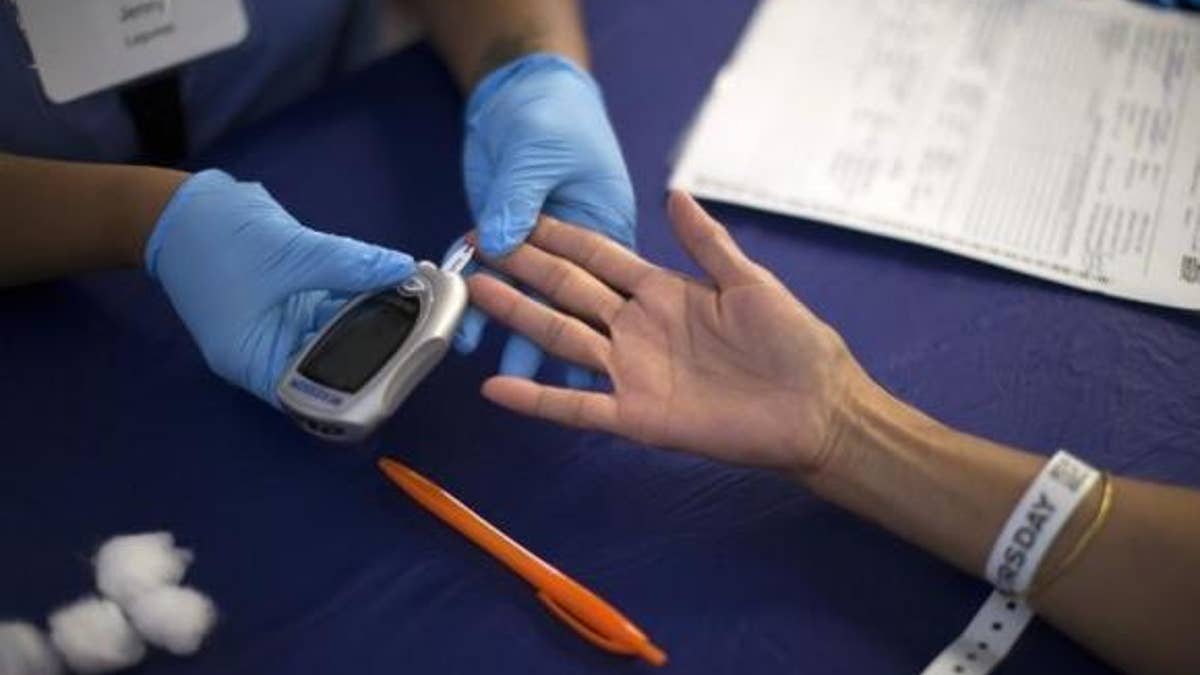
Sept. 11, 2014: A person receives a test for diabetes during Care Harbor LA free medical clinic in Los Angeles, California. (Reuters)
Scientists believe they’re closing in on a cure for Type 1 diabetes, and perhaps making daily insulin shots a thing of the past for patients, according to studies published Monday.
Researchers from MIT, Harvard and Boston Children’s Hospital said they’re on the verge of developing replacements for pancreatic cells that are mysteriously destroyed by a patient’s own body — thus making it impossible to make insulin, which regulates blood sugar levels.
Scientists, writing in the journals Nature Medicine and Nature Biotechnology, said they’ve engineered material from brown algae that could work for up to six months at a time — in a huge relief from daily doses of insulin, whether by injection or insulin pump.
“We are excited by these results, and are working hard to advance this technology to the clinic,” said Daniel Anderson, an MIT chemical engineering professor.
Type 1 diabetes, previously known as juvenile diabetes, afflicts about 1.25 million Americans, and about 200,000 of them are under 20, according to a CDC report in 2014.
Type 1 diabetes is believed to have a genetic connection and is not related to weight or lifestyle, as is Type 2 diabetes.
“Encapsulation therapies have the potential to be groundbreaking for people with (Type 1 diabetes),” said Julia Greenstein, vice president of discovery research of the JDRF, formerly known as the Juvenile Diabetes Research Foundation. “These treatments aim to effectively establish long-term insulin independence and eliminate the daily burden of managing the disease for months, possibly years, at a time without the need for immune suppression.”